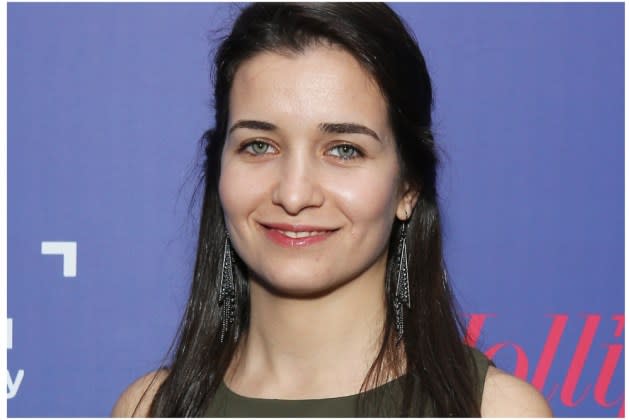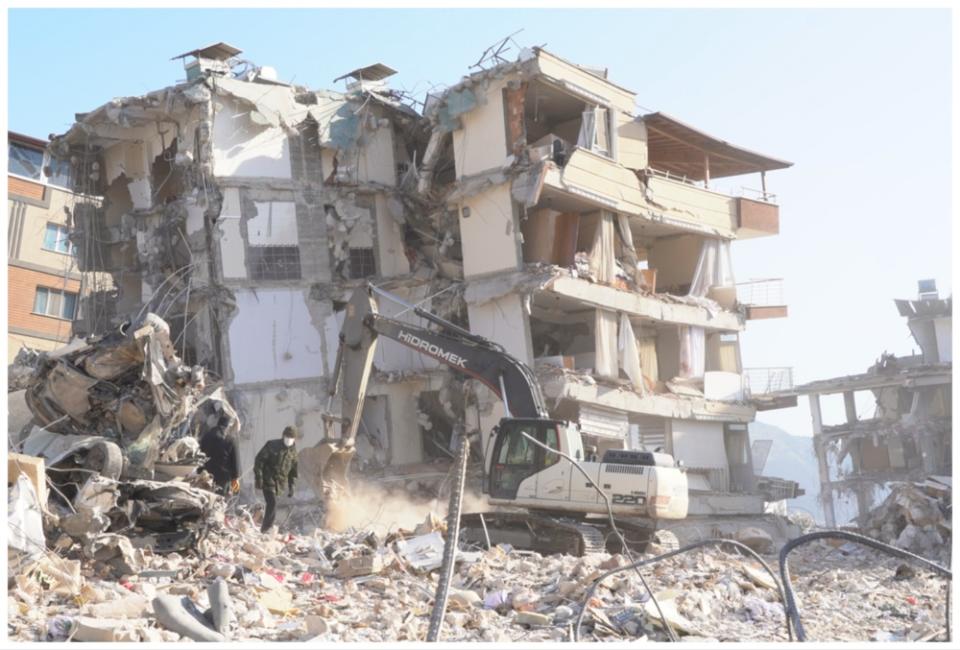‘For Sama’ Director Waad al-Kateab on Turkish-Syrian Earthquake Doc ‘Death Without Mercy’: ‘These People Didn’t Die Just From a Natural Disaster’

On Feb. 6, 2023, after a devastating 7.8 magnitude earthquake struck the Turkish-Syrian border, becoming the deadliest disaster in the region’s modern history, Syrian director Waad Al-Kateab was in London fretting about her family and friends, and feeling helpless.
The activist and helmer of “For Sama” – the Oscar-nominated civil war diary that traveled around the world – was unable to reach the stricken area, having fled the Bashar Assad regime. But she immediately reached out to people on the ground, including her friends Fadi Al Halabi, a cinematographer on Oscar-winning short “The White Helmets,” and Fuad Sayed Issa, founder of Syrian refugee-led humanitarian group Violet.
More from Variety
Academy Announces Recipients of 2021 Golden Fellowship For Women - Film News in Brief
'For Sama' Director Waad Al-Kataeb Is Filming a Documentary About the IOC Refugee Olympic Team
Shortly thereafter Al-Kateab got a call from prominent producer Sheila Nevins. This led to her directing “Death Without Mercy” the powerful observational doc from MTV Documentary Films that premiered at Sheffield DocFest in June. It weaves together intimate first-hand footage with TV news reports, social media, CCTV, drone shots, archive material and master interviews, following a “you are there” narrative structure that chronicles the first 10 days in the aftermath of the quake that took more than 60,000 lives.
Al Kateab chose this device to frame the story because “that’s when we found out everything,” she tells Variety in an interview, pointing out that “after the tenth day nobody under the rubble could still be alive.”
What was your first reaction upon first learning of this devastating earthquake?
Like so many other Syrians around the world, I was shocked. And, from the first second that I heard what was going on, as a filmmaker, I was saying to myself: “We need to do something about this.” But I found myself hopeless and helpless being a refugee, living in the U.K. Not able to go there; not able to do anything more than calling people, and being on the phone, first with my own family who, luckily, survived. They were out on the street until they managed to get to Ankara.
How did you start shaping the doc?
I immediately started reaching out to people through groups we have as activists. We started trying to help in any possible way. We were just sharing locations of some people whom we used to know, and pictures of people who were not being found, and doing fundraising. I remember one of the very early calls I had was with Fadi. I’ve known Fadi since since 2011 when he worked on “The White Helmets.” His brother, Yaman, who was missing under the rubble, was also a friend of ours. I called him, and he was speechless. I was just trying to tell him: “Please, be strong, Fadi. The only way you can do this is [to] film yourself.” But we weren’t really thinking about the [specifics of] of a film. Our first thought was just, let’s document everything we can.
As I understand it, things moved to the next level when you got a call from producer Sheila Nevin. Right?
Yes, when Sheila Nevins contacted me, she told me she wanted to do an observational film about the earthquake. I thought: “Yes, this might be an opportunity for them, to tell their story.” So I contacted both of them because I knew Fadi had lots of footage of the first 10 days. As for Fouad, I’d seen his Instagram, he’s not a filmmaker himself, but he had people around him who were filming. Also, he’d published so many stories on Instagram, and the survival of his wife and baby was just an amazing story. So I thought: “we can do this!”
In telling the stories of two Syrian families in the immediate aftermath of the earthquake you clearly had to make some quick decisions. Was that tough?
To be honest, I was living with them second-by-second, minute-by-minute. We couldn’t sleep for the first couple of days. And, when I thought: “Okay, we’ll do this.” The first thing I said to myself is I will try to put myself in their shoes and think: “What do they know at this time? What is important for them?” That’s a very important element in the film. To be with them in their experience. It’s like it’s a race against time. And we’ve expressed this in the film. That every second counts; every minute counts. That’s why I decided to start the film with the earthquake. And then we go with these characters individually to understand their position, their circumstances and their situation. I was trying to get the audience to experience the predicament of each one of them. And, yes, time was the most critical element in that experience.
My impression is that this film can be considered a form of therapy. A way for its protagonists to try and come to terms with this huge tragedy. Is that a fair assessment of what happened on their end?
The first thing they said is: “We want do this film because we wanted to talk about our families. It was just very important to give them space to see who we lost, because 60,000 people, that’s a a big number, a huge number. For each one of these people who has been lost, there’s family. There’s someone who’s still really affected by this loss. And they wanted just to bring them back to life, in a different way, to remember them in a good way.
The piece also shows the level of mismanagement. First of all, in terms of construction. And then in the reaction of the Turkish Government and various other institutions. Do you think it can help bolster the notion of the incompetence and complete negligence that led to these 60,000 deaths?
I think it’s definitely what they [the film’s protagonists] are looking for, and so am I. It’s a call for justice because these people didn’t die just due to a natural disaster. There’s corruption; there’s a systematic failure on the part of the Turkish Government, and of the U.N. There’s no way we can just accept this, and live with it. I think it will support other legal work that is happening in Turkey, and also around the world, toward accountability on the part of the Turkish Government for their failure.
This interview has been edited and condensed for clarity.
Watch “Death Without Merci” trailer below:

Best of Variety
Sign up for Variety’s Newsletter. For the latest news, follow us on Facebook, Twitter, and Instagram.


